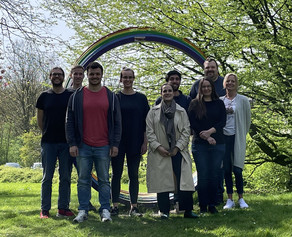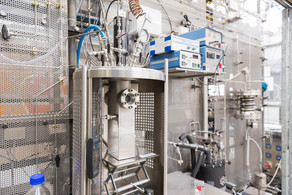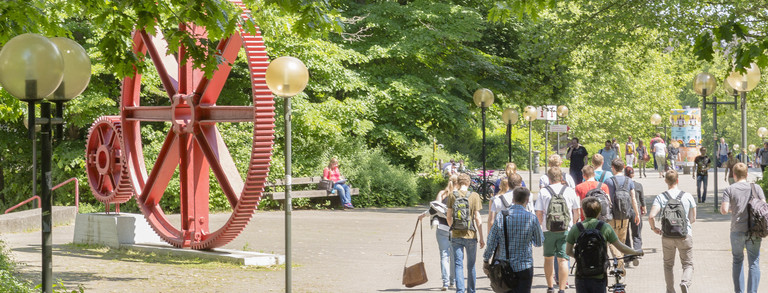Sustainable production of thermal energy
| Type | Lecture (3LP) + Exercise (2LP) | |
| Language | English | |
| Audience | Master (CIW, PSE, BIW, BPE) - elective | |
| Rythm | Winter Semester | |
| LV-/LSF-Number | 066050/ 066051 | |
| Exam | Written (120 min) |
Please refer to the LSF and Moodle for the most recent information.
Course content
This course provides the students with the foundations to address the challenge of defossilization of thermal energy production in the framework of defossilization of the industry. To this end, the fundamentals and status quo of thermal energy production is first provided. Following, concepts and tools to develop renewable and/or more sustainable pathways, including renewable fuels, direct and indirect electrification strategies, and thermal energy storage and integration are discussed. High-temperature systems are included. It is organized as follows:
- Energy generation and distribution
- Basics of thermodynamics and combustion: refreshment of relevant thermodynamic concepts and thermodynamic cycles; introduction to solid, liquid, and gas fuels; combustion as a chemical reaction; heat of combustion; pollutants.
- Conventional thermal power plants: Rankine, Brayton, and Combined Cycles, outline of conventional thermal/power plants, plant operation, environmental impacts.
- Combustion systems: boilers, burners, engines; energy balances.
- Cooling: fundamentals of psychrometrics, refrigeration, heat pumps.
- Renewable energies for thermal energy production: biomass, municipal solid waste, geothermal energy, solar energy, H2.
- Electrification of thermal energy production: direct and indirect pathways; low-temperature and high-temperature systems.
Storage and integration of thermal energy systems: solutions for thermal energy storage, combination of thermal energy production systems, heat integration.
Acquired competences
The students are acquainted with the fundamentals of conventional thermal energy production systems and they are able to perform high-level design and balancing tasks on conventional thermal energy production units. The students are able to identify problem-specific, renewable and/or sustainable, alternative pathways for thermal energy production, including design/operation modifications, risks, and challenges in comparison to conventional systems. The students have basic knowledge on how to integrate direct electrification strategies into design tools.
Lecture: Prof. Alba Diéguez Alonso
Exercise: Dr.-Ing. Andrea Dernbecher, Dr.-Ing. Juan Jesús Rico Fuentes






